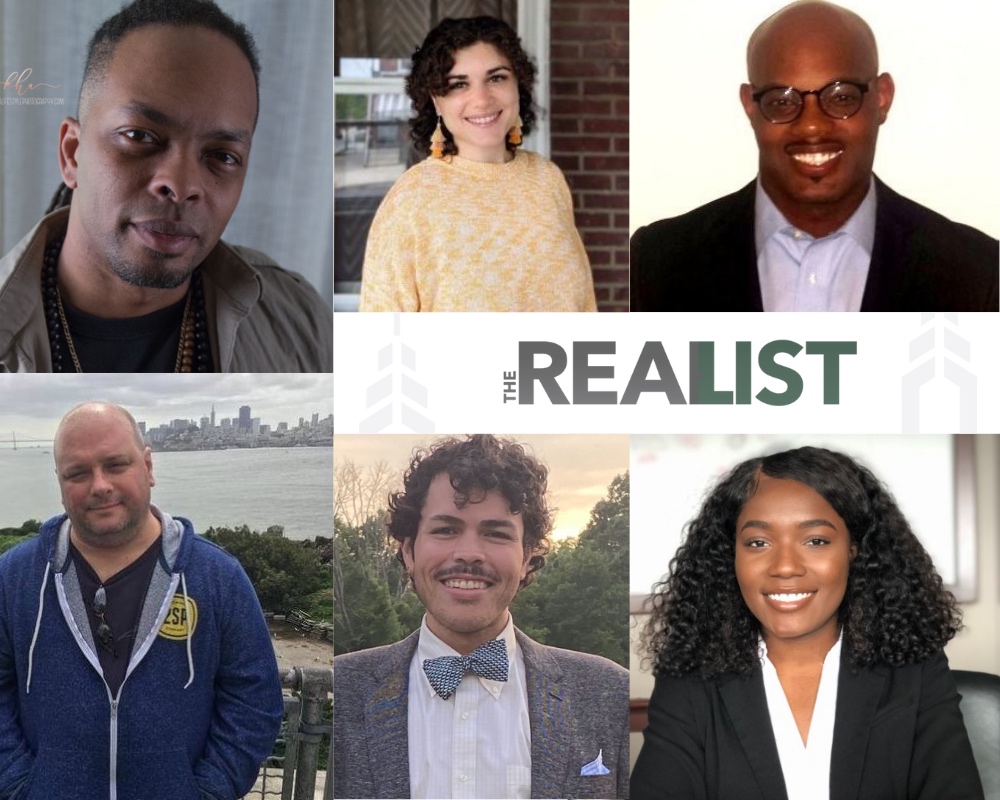Welcome to Technical.ly’s second annual RealLIST Engineers of Delaware.
When we launched our first round of the RealLIST Engineers in 2020, there was some discussion over how we were defining an “engineer” — a problem solver, a technologist and, ultimately, a software and IT professional. The inaugural list focused on software developers. This year, with no repeats allowed, we opened it up a bit to include engineers in STEM fields working in some of Delaware’s growing industries, including greentech and healthtech, while still recognizing the community’s software engineers.
This list of 11 influential software and STEM engineers range from coding instructors to data scientists to STEM startup founders. The search began with a public call for nominations. Then, we consulted technologists and looked back through our own coverage. We considered how the person in mind was influential within their organization and community, how they overcame a specific technical challenge, and how they contributed to educating others on technical issues.
This year, many of the nominees come from groups that are underrepresented in the industry — though we’re still seeing a dearth of women in tech roles. Will programs like Code Differently’s woman-focused coding cohorts make an impact on future RealLIST Engineers lists? We’ll keep an eye out to see.
Now, in alphabetical order, here are Technical.ly’s 2021 RealLIST Engineers for Delaware.

Mikaila Akeredolu, technical instructor, Zip Code Wilmington and Year Up
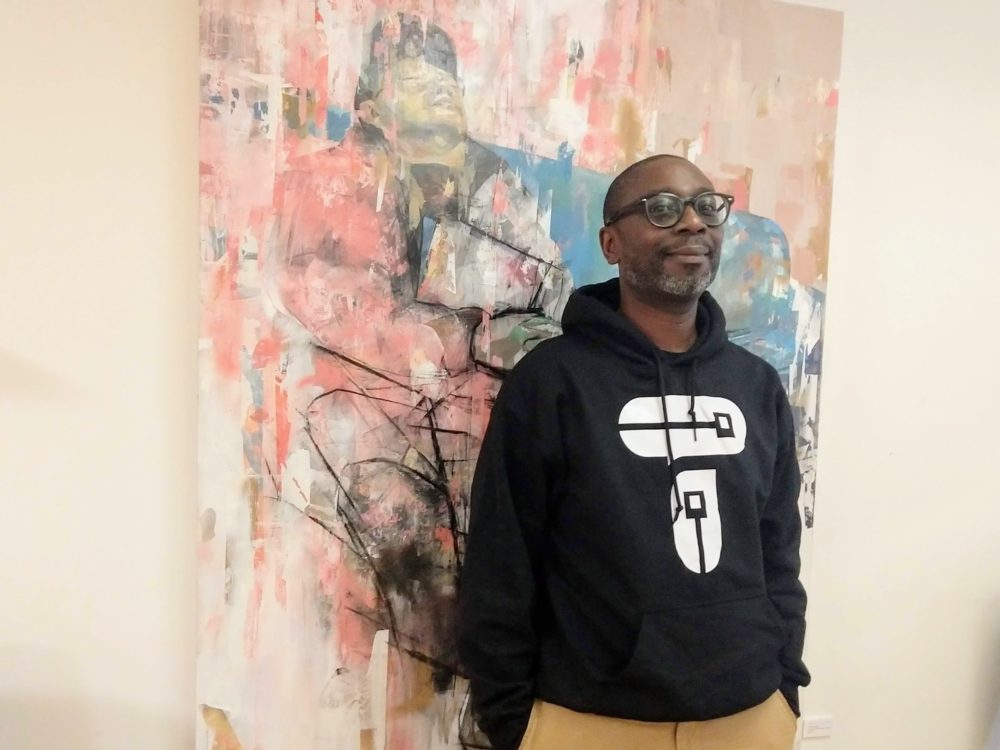
Growing up in public housing in Brooklyn, Akeredolu juggled part time work and his education, and never earned a traditional four-year college degree. He eventually moved to Delaware and got a sales rep job with AT&T, before successfully graduating from Zip Code Wilmington’s software coding bootcamp, which led him to a jobs as as a software engineer at Comcast.
Akeredolu later left his corporate job to return to his love for computer science and his passion for education: He started Tech552, a technical training firm designed to help people get into coding bootcamps, in 2019, and eventually returned to ZCW as an instructor in 2021.
“Mikaila Akeredolu is extremely influential at Zip Code Wilmington, at Year Up Wilmington and Wilmington University,” his nominator wrote. “His expertise is helping to expand Delaware’s position as a leading tech hub. There are a significant number of Wilmington-area graduating seniors who can’t afford to pay the high price of four-year colleges and many who need to contribute to their family’s monthly income, and Year Up Wilmington’s software coding program, which he teaches, can be an answer for these students, giving them the potential of making more than $80,000 a year.”
Mohammed Baksh, research fellow, University of Delaware and Delaware Data Innovation Lab
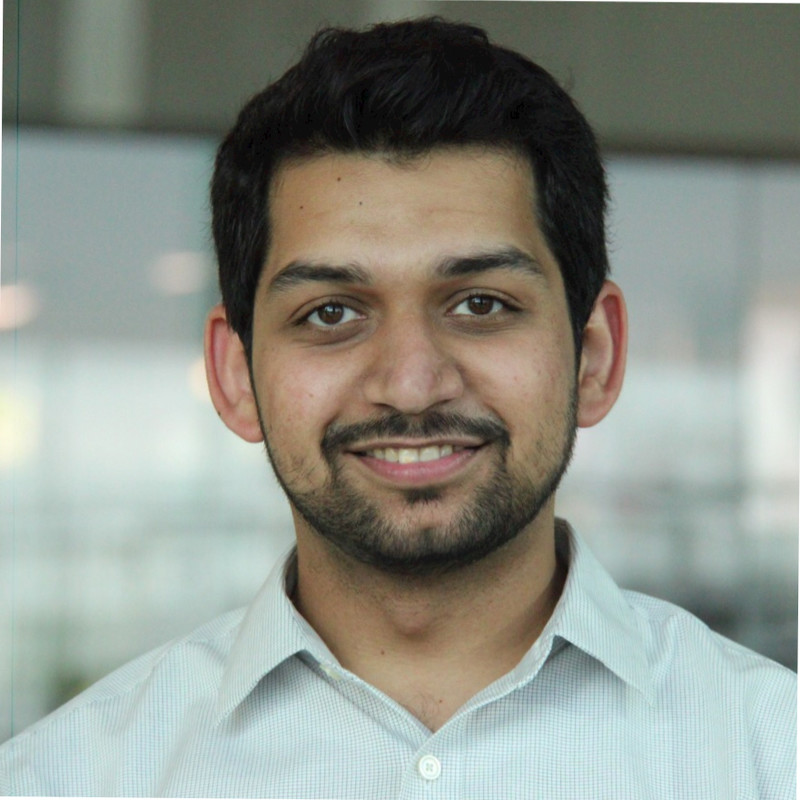
Baksh, who grew up in Saudi Arabia, is researching transportation analytics and computer vision (think: self-driving cars recognizing road signs) as a graduate research fellow working on his Ph.D. at UD. He received his bachelor’s degree in electrical engineering and master’s in electrical and computer engineering from the school, too. He’s currently a data fellow at the community-focused data science org Delaware Data and Innovation Lab (DDIL).
For DDIL, “he recently developed a tool that will make execution of the census tract labeling pipeline an open-source product, allowing key users — mainly government, community, and nonprofit decision makers — to examine and infer findings from their data in a granular format that is relevant to their already known (and in practice) action and funding plans and best represents neighborhoods characteristics more specifically” by using census tract versus ZIP code, wrote his nominator.
Why does that matter? “ZIP codes are not unique to a single county and can be troublesome in data interpretation, census tracks are much more targeted and reliable and are a better representation of targeted funding for government and nonprofit programs,” the nominator said.
Aundre Chambers, system engineer, WSFS
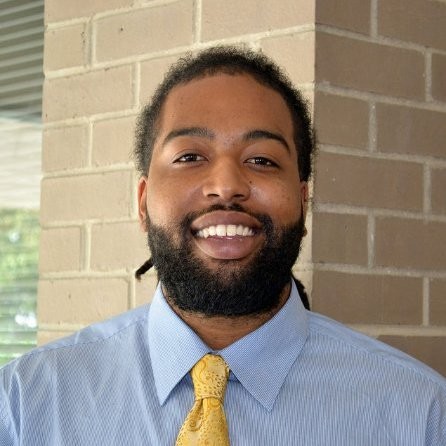
Chambers is a system engineer at the prominent Wilmington-based bank and a 2015 graduate of Tech Impact’s ITWorks training program.
“Aundre is an ambassador for Tech Impact’s ITWorks program, mentoring students and being a role model for new students that enter the program,” his nominator wrote. “It is his way of giving back to the program and to his community. He recently spoke at the ribbon cutting, following Gov. Carney and Sen. Carper, and received a standing ovation for his remarks about providing opportunities in technology.”
L. Dolio Durant, lead technical instructor, Zip Code Wilmington
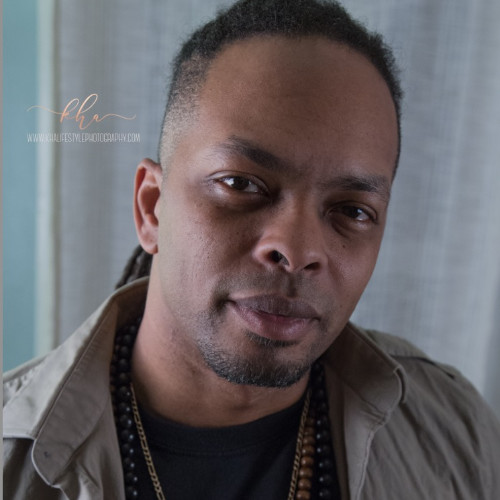
Durant is an MIT grad with over 20 years of experience in the field, as well as a well-known persona in the Philly and Delaware tech scene.
“In his current role as lead technical instructor, Dolio not only teaches the students in various object-oriented programming languages and frameworks, he also developed and maintains Zip Code Wilmington’s proprietary portals,” his nominator wrote. “The portals are used to facilitate the web-based aspects of the students’ learning experiences including tracking of assignments, automated testing of Java and Python code, and scoring of examinations, hosting of video streams and class visuals, event scheduling, and data analysis.”
That work had outsized importance during the pandemic, they said, and allowed the coding school to continue training virtually.
“Moreover, Dolio is a role model for others outside of his work,” they said. “He bakes, he grows his own produce, and he raps. As a member of Gangstagrass, ‘Dolio the Sleuth’ combines unique hip-hop lyrics over bluegrass music which brings awareness to the fact that we are all more alike than different. Gangstagrass was recently featured on ‘America’s Got Talent‘ and regularly tours national and international venues with a message of unity and hope. Dolio is, indeed, a modern renaissance man. In tech terms, Dolio is truth.”
Jalaal Hayes, founder, Elyte Energy
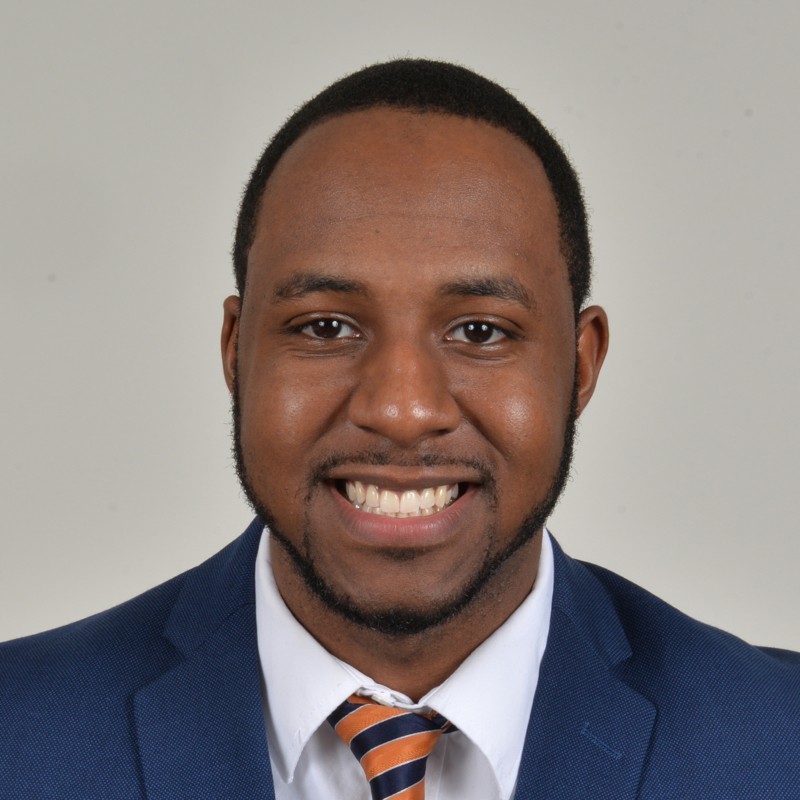
Hayes received his Ph.D. in applied chemistry in 2015 at the age of 22, after a graduating from Lincoln University and Delaware State University. While he was a student in 2011, he worked a three-month internship with NASA and the Maryland Department of Environment, which set him on a path toward a career in green technology — specifically hydrogen energy.
“I knew hydrogen energy was going to be the wave of the future,” he told Technical.ly in July. “I just didn’t know when.”
Hayes started Elyte Energy in November 2020 and was soon accepted into the Delaware Innovation Space’s Science Inc. Accelerator. The company’s green, renewable hydrogen power banks, based on the hydrogen storage technology he patented in 2017, are marketed primarily to the growing RV community.
Von Homer, founder, HXInnovation
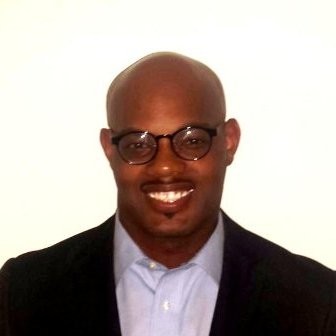
Before launching HXInnovations with his wife Nicole Homer in June 2019, Von Homer worked directly with footwear companies, testing developing footwear technologies for products including Skechers Arch Fit, Adidas Codechaos or Timberland PRO.
A former football player, Homer first got into neuroergonomics after he suffered a severe hyperextension leg injury which would give him the opportunity to learn, through physical therapy, that athletes didn’t really know if they were pushing the limits of their body’s capabilities. He went on to earn a master’s in human movement and biomechanics, then a Ph.D. in neuroscience.
For the last two summers, Homer has shared his expertise with kids in FAME summer camp, where they learn that sports and science intersect, and that performance footwear is much more than just cool to look at.
Chris Hornberger, CIO and lead developer, Green Line Business Group
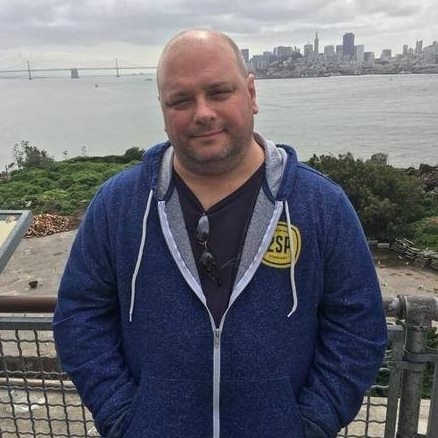
Hornberger is the lead developer of Green Line Business Group’s new Danio Wellness platform, which aims to disrupt the healthcare gap by combining the company’s secure medical information communication system, Danio Diary, with curated telemedicine that prioritizes the needs and concerns of the under-resourced while being as easily accessible as possible.
Developing a healthcare platform that is so easy to navigate that a person with little to no experience with technology can use it was a challenge that took a lot of revisions to get right. The app has attracted a buzz among physicians interested in working with patients on the platform, and Green Line’s team said it’s in talks for a substantial, potentially multimillion dollar deal. The app, which is in testing, is expected to launch in early 2022, with Hornberger at the lead.
Previously, the technologist also worked as a longtime senior software engineer for BlackRock.
Héctor Maldonado-Reis, data scientist and associate director, Delaware Data Innovation Lab
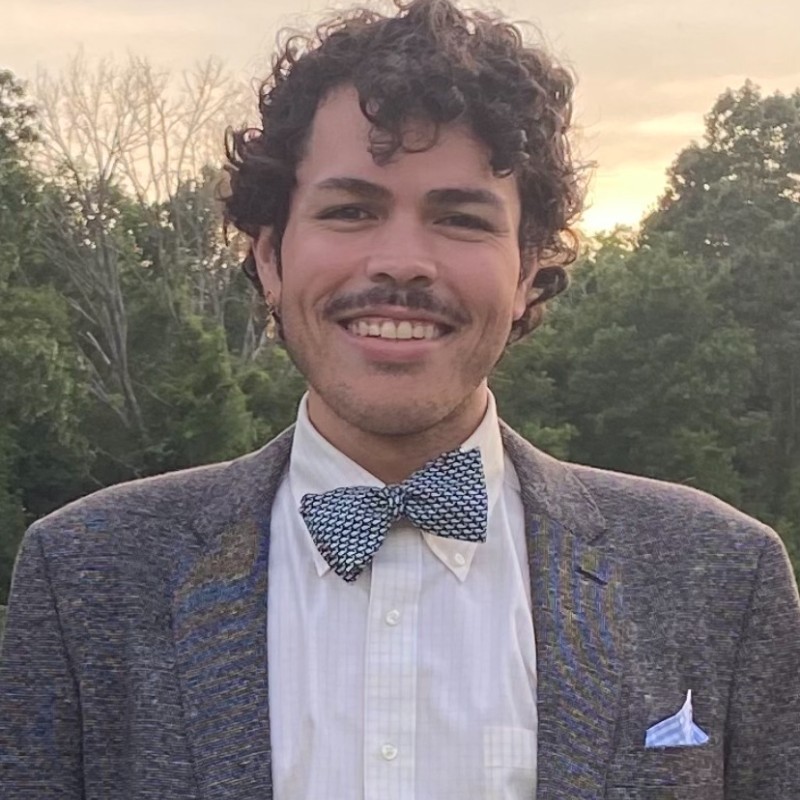
Maldonado-Reis, who holds a master’s degree in population health sciences from Harvard University, was one of DDIL’s first fellows after it launched in 2020. He is now its associate director of research, development and analytics, and runs the same fellowship program he started in as it continues to offer opportunities for emerging data scientists.
“The fellowship, outside of the job opportunity that it creates, is also a professional development opportunity for Delaware,” Maldonado-Reis told Technical.ly in September. “Part of it is that we train a data scientist, but, also, we train a data scientist in our space, which is a nuance of its own.”
Joanne Norris, materials engineer and cofounder, Carbon Reform
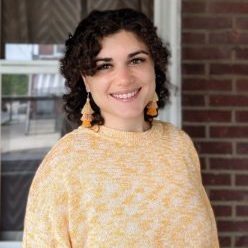
Norris is a materials engineer, climate scientist and artist. A third-year Ph.D. candidate at UD, launched Carbon Reform with business partner Nick Martin last February. The startup is developing a modular carbon capture device for commercial buildings that will remove indoor carbon buildup that results when many people are in an indoor space breathing the same air, even if it’s ventilated.
Norris didn’t necessarily set out to be a scientist. A professional artist since the age of 16, she attended Hofstra University with majors in economics and sustainability and a minor in fine arts. The sustainability major was brand new at the time — she was only the second student to declare it, as she told Technical.ly in May. While earning her masters in climate and society at Columbia University, she took a non-required environmental engineering course, where she first learned about carbon capture.
“I got into the Ph.D. program at UD studying material science because I was wondering if it would help me do what I’m doing now — convert CO2,” Norris said. “And it does.” She ended up studying polymers, and now, her Ph.D. work is in biodegradable polymer systems.
Juliana Paul, tech lead at Code Differently
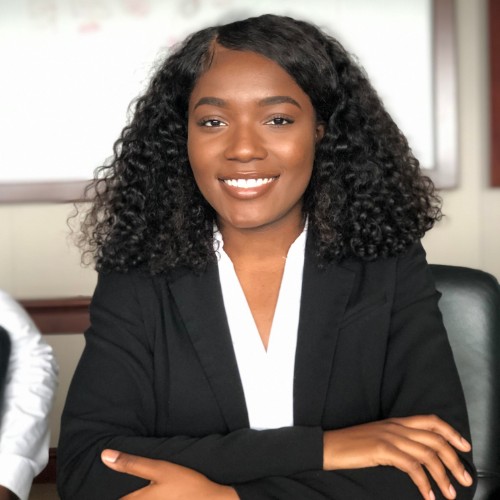
Paul is an alum of the coding bootcamp’s college program, StayReady, and works as a tech lead for its high school work-based learning program while finishing her degree at Delaware State University.
“She just completed an internship with JPMorgan Chase,” added her nominator. And furthermore, Paul was recently selected for the eighth cohort of HBCU Scholars by the White House Initiative on Historically Black Colleges and Universities, they noted.
Kwaku Temeng, founder, Desikant
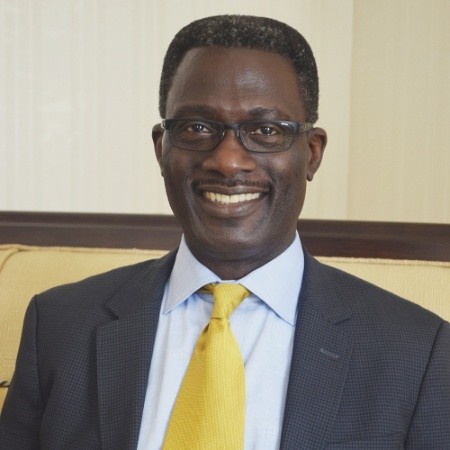
Temeng first came to Delaware to work as DuPont engineer after earning his Ph.D. in chemical engineering from Georgia Tech, as well as an MBA from The Wharton School. In 2013, he moved on to become director of innovation for Under Armour, where he began working in the field of innovative apparel.
In mid-2020, at the height of the pandemic, Temeng decided to start his own startup, Desikant, which develops smart garments that autonomously monitor humidity and temperature and adapt as needed, targeted toward surgeons, soldiers and athletes.
Desikant was the top awardee at the inaugural Startup302 startup competition, and it received a 2021 EDGE Grant.

